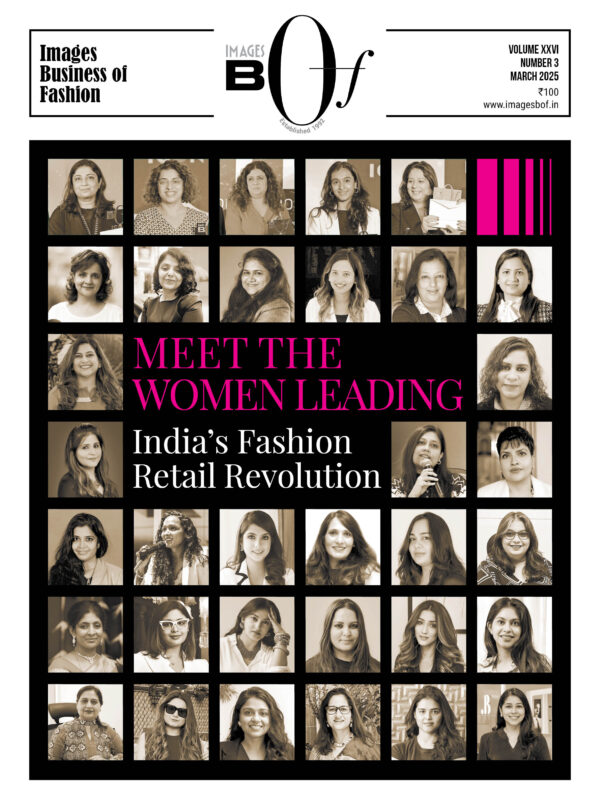Prominent companies in the fashion and textile sector are adopting sustainable approaches by leveraging cutting-edge technologies, environmentally conscious practices, and cooperative efforts. From ABFRL’s pioneering circularity guidelines and Archroma’s eco-friendly dye technologies to Lenzing’s resource-conserving fibres and Birla Cellulose’s pro-planet initiatives, each is contributing to a greener future. Meanwhile, Canopy’s efforts to protect endangered forests and promote sustainable alternatives highlight the collective drive toward responsible fashion and environmental conservation.
Following is a list highlighting key players driving change and setting new standards for environmental responsibility in the fashion industry.
R|Elan™: Fabric of the Future
R|Elan™, an innovative fabric brand from Reliance Industries Ltd., offers a range of high-performance textiles designed to meet the evolving demands of today’s discerning consumers. Combining cutting-edge technology with sustainability, R|Elan™ fabrics are engineered to be smart inside and beautiful outside. R|Elan™, with its extensive product portfolio, offers a comprehensive solution for brands looking to create innovative and sustainable shirt collections. From a sustainable fabric made from recycled polyester, to a moisture-wicking fabric ideal for hot weather, R|Elan™ has something to offer every consumer. R|Elan™ fabrics offer a multitude of benefits that make them a popular choice for shirts.
In terms of performance, R|Elan™ fabrics excel in moisture management, wrinkle resistance, wider colour options, and durability. These fabrics are also renowned for their comfort, ensuring a pleasant wearing experience even in challenging conditions. The versatility of R|Elan™ fabrics is another key advantage, as they can be used in various shirt styles, catering to both casual and formal occasions.
Some of the key R|Elan™ fabrics that are driving growth in the Indian shirting market include: ·
- GreenGold: a sustainable fabric made from recycled polyester, offers excellent durability and comfort while minimizing environmental impact.
- Kooltex: a moisture-wicking fabric that keeps wearers cool and dry, is ideal for hot weather and high-activity days.
- CotLuk: fabric that combines the softness of cotton with enhanced performance benefits.
- Superfeel: a fabric with an exceptionally soft touch, is perfect for high-end shirts.
Bio-derived LYCRA® fiber made with QIRA®
Creating a Scalable, Sustainable Solution for Spandex: The world wants more sustainable solutions for everything – from fuel, to food, to consumer goods, to clothing. Manufacturers want to keep up with consumer demand, but often struggle to source comparable, sustainable substitutes to products currently on the market, without building new production facilities and developing new processes. Companies along the supply chain are trying to meet their environmental goals and enable their own suppliers and customers to meet theirs. With the imperative to reduce GHG emissions 45% by 2030 and to reach net zero by 2050, there is a tremendous need for textiles, clothing and apparel manufacturers and their supply chains to develop and scale sustainable solutions.
Last year, two innovative companies, leading fiber and feedstock providers, joined forces to scale up the production of a bio-derived fiber that could potentially transform the spandex industry. The LYCRA Company, known for its innovative fiber solutions, has teamed up with Qore® — a joint venture of Cargill and HELM — to enable the world’s first large-scale commercial production of bio-derived spandex. LYCRA® fiber, which is used in everything from underwear to jeans, to swimwear and diapers, will use renewable bio-derived QIRA® from Qore® as the main ingredient.
Currently, a key ingredient in LYCRA® fiber is BDO (1,4-butanediol), which is produced from fossil-based resources. QIRA® is the next generation BDO — made from annually renewable field corn instead of finite fossil-based resources. QIRA® is made with field corn, not the sweet corn that’s consumed by humans.
Aditya Birla Fashion and Retail Limited
Among the leading companies driving the sustainability movement in fashion, Aditya Birla Fashion and Retail Ltd. has established a notable presence. Earlier this year, ABFRL, in collaboration with Deutsche Gesellschaft für Internationale Zusammenarbeit (GIZ), launched the first circularity guidelines for India’s textile and apparel industry at the Sankalp Bharat Summit 2024 in Varanasi. Titled ’Stitching the Circle: A Roadmap for Circular Textiles & Apparel in India’, the guidelines provide a comprehensive framework for transitioning from a linear to a circular economy model.
The guidelines introduce the 6R Approach—Redesign, Reduce, Reuse, Remanufacture, Recycle, and Regenerate—as a framework for enhancing resource efficiency and circularity within the industry. They also set Key Performance Indicators (KPIs) to measure circularity and encourage alignment with global sustainability certifications.
Additionally, at the India Fashion Forum (IFF) Innovators Club’s Sustainability Conclave 2024 Dr Naresh Tyagi, Chairman, Chief Sustainability Officer, ABFRL highlighted the key values that drive sustainability at ABFRL and beyond.
He said, “It’s important to understand how sustainability is embedded into a company’s business practices. For ABFRL, there are three key factors: first, the intent must be right – going beyond compliance to act responsibly across all segments. Second, the content must be right – sustainability should be applied throughout the entire value chain, including the supply chain. Third, you must measure impact by tracking progress – if it’s positive, you’re creating the right impact.”
Birla Cellulose
Birla Cellulose, the Cellulosic Fibres business of the Aditya Birla Group through its innovative fabric brand Liva, is reshaping sustainable fashion by combining comfort, style, and environmental responsibility. Crafted from natural cellulosic fibres sourced from renewable wood pulp, Liva provides a soft, fluid drape while conserving land and water resources. The pro-planet initiative, Livaeco, takes sustainability a step further, offering garments that biodegrade within six weeks, reduce CO2 emissions, and maintain traceability from forest to fashion.
Launched in 2015, Liva has grown exponentially, forming partnerships with top retail brands like Allen Solly, BIBA, and Pantaloons while promoting sustainability through plantable garment tags. With Livaeco, Birla Cellulose reaffirms its commitment to eco-conscious innovation, inspiring a new generation of responsible fashion consumers.
In addition, Birla Cellulose secured the top spot in Canopy’s Hot Button Report 2024, earning the highest ‘Dark Green Shirt’ rating for the fifth consecutive year. The ranking reflects the company’s ongoing leadership in responsible wood sourcing and its efforts in forest conservation.
“Birla Cellulose is proud to be leading the collaborative effort for scaling up Next Gen solutions. This prestigious recognition affirms Birla Cellulose’s unwavering dedication to enhancing sustainable wood sourcing practices, forest conservation, and maintaining transparency in the value chain,” said H.K. Agarwal, Managing Director, Grasim Industries Ltd., and Business Director, Birla Cellulose.
Archroma
In May 2024 Archroma, a global leader in specialty chemicals focused on sustainable solutions, brought a comprehensive suite of denim solutions to the Bangladesh Denim Expo 2024 at the International Convention Center (ICCB) in Dhaka on May 6 to 7, 2024 (Booth 56).
“Sustainability stands as a paramount concern for numerous brands, echoing the heightened environmental consciousness among consumers,” said Umberto De Vita, Market Segment Director for Denim, Archroma Textile Effects.
Furthermore, in a freewheeling chat with IMAGES Business of Fashion’s Kajal Ahuja, Paul Cowell, Vice President of Innovation, Brand Engagement and Sustainability, Archroma Textile Effects highlighted, “We’ve worked very, very hard with our innovation team to see how we can bring the cost down and make sustainable products at an equal cost as non-sustainable products. In the area of new reactive dyes, in the area of chemistry, we’re looking at biomass-based raw materials, replacing petroleum raw materials with biomass-based.”
“It can be anything from recycled polyesters, agricultural waste, palm oils, but only sustainably sourced palm oil, building more sustainable regenerative raw materials into our products. The other area we had success is with Earthcolors® some years ago. This is where we manufacture dye stuffs from agricultural waste,” he said.
“We’re now branching out onto what we call FiberColors®. Here we take waste fibres, break them down and make a new dye from this waste fibre. We hope it will have an impact on sustainability,” Cowell concluded.
Lenzing
For over 80 years now, Lenzing, a leading Austrian provider of wood-based specialty fibres, has been looking beyond fibre. Lenzing’s fibres are made from natural wood. They are botanic products derived from renewable sources and processed with unique resource-conserving technologies. This is how the company takes responsibility for our planet’s future.
In recent years Lenzing has developed numerous innovative process technologies that make a significant contribution to the conservation of resources and thus to the protection of the environment. Some of its most notable technologies include:
- REFIBRA™ technology
- Eco Cycle technology
- Eco Filament technology
- LENZING™ Web technology
- Eco Color technology
To learn more about Lenzing’s contributions to sustainability in the fashion industry click here.
Canopy
Non-profit environmental organisation Canopy, which works to protect forests, species, and climate by collaborating with the forestry industry, businesses, and communities was founded in 1999 by Nicole Rycroft. Canopy focuses on ensuring the sustainability of the world’s ancient and most endangered forests. Its efforts include encouraging the fashion, packaging, and publishing industries to adopt eco-friendly alternatives to wood-based products, such as using recycled materials or innovative textiles made from agricultural residues.
More notably, the organisation is working on an initiative called the CanopyStyle campaign, which collaborates with over 500 global fashion brands to eliminate the use of wood-derived viscose in fabrics, steering them toward more sustainable alternatives. Alongside protecting forests, Canopy hopes to protect biodiversity, reduce carbon emissions, and promote sustainable business practices.
Read more about Canopy’s evolution as one of the leading companies driving fashion towards sustainability, click here.



